Finding ants in your bathroom can be a nuisance. These pests are often attracted to water sources and food residues like toothpaste and soap. Fortunately, there are simple steps you can take to get rid of them and prevent future infestations.
By keeping your bathroom clean, sealing entry points, and using natural remedies or baits, you can effectively manage and eliminate ants. Regular maintenance and prompt action are key to ensuring your bathroom stays ant free. Taking these steps will help you enjoy a cleaner, more comfortable space.
Getting rid of ants in your bathroom involves identifying their entry points, removing attractants, and using natural or chemical solutions to eliminate them. Common household ants are drawn to moisture and food residues found in bathrooms. Effective removal requires a combination of cleaning, sealing gaps, and targeted treatments
Let’s look at how you can get rid of ants in your bathroom quickly and effectively.
Key Takeaways
Deeply moist areas, hair and dead skin cells, food sources, and scented products are all reasons ants may be attracted to your bathroom.
It is important to identify the type of ants in your bathroom to understand the most effective way to get rid of them.
Eliminating food and water sources, using natural and chemical treatments, and calling a pest control professional are strategies to consider for dealing with ant infestations.
Understanding Why There Are Ants in Your Bathroom
Ants are often found in bathrooms due to the presence of moisture, which provides them with an attractive environment for nesting. Additionally, bathrooms offer potential food sources such as residue from personal care products, dead skin cells, and even small crumbs.
Identifying the type of ant infesting your bathroom is essential for implementing effective eradication methods. To address ant infestations, it is crucial to eliminate food and water sources, seal entry points, and maintain good hygiene practices.
Identifying Types of Ants
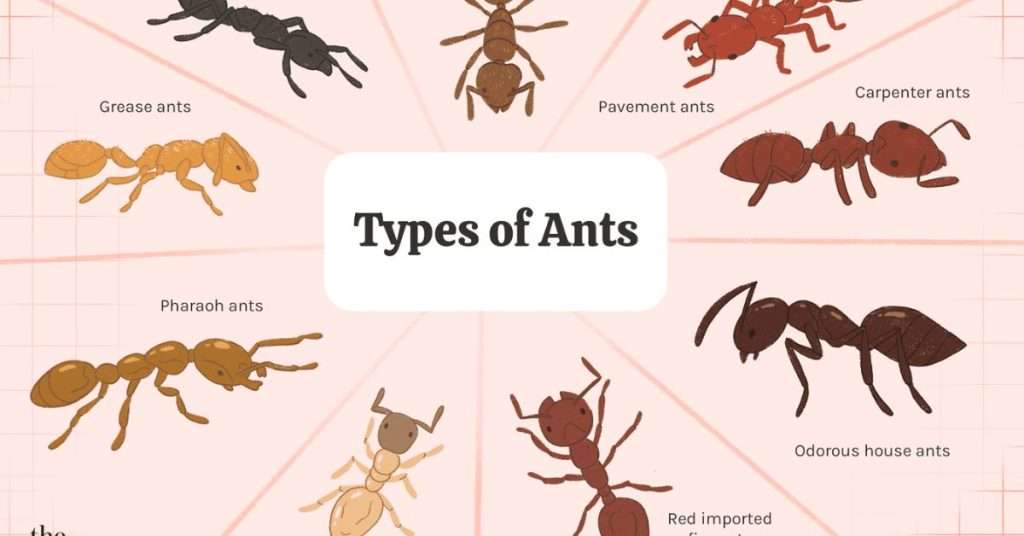
Identifying types of ants can be crucial for effective pest management in your home. Common species like Pharaoh ants, Carpenter ants, and Argentine ants may exhibit different behaviors and require specific control methods.
To identify ants, observe their size, color, nesting habits, and behavior patterns, or consult with a pest control professional for accurate identification.
Also Read This Blog: Best Paint for Bathroom Ceiling in 2024
Locating Ant Entry Points
Thorough Inspection:
Conduct a comprehensive examination of windows, doors, and other potential entry points. Look for cracks, crevices, and gaps where ants could be entering your home.
Targeted Search:
Focus on areas near plumbing fixtures, electrical wiring, and utility entry points. Check for signs of ant activity, such as ant trails or small piles of debris.
Sealant Application:
Once entry points are identified, use caulk or sealants to close off access for ants. Ensure all gaps and openings are properly sealed to prevent further infestation.
How To Remove an Ant Infestation in Your Bathroom?
Vacuuming
Vacuuming is an efficient way to eliminate ants from your bathroom:
Effective Tool: Use a shop-vac with a crevice tool attachment to target ants in carpets and mats.
Prevent Escapes: Immediately empty the vacuum tank outdoors or into a sealed bag to avoid releasing live ants elsewhere.
Enhanced Action: Consider lining the bottom of the tank with boric acid dust to ensure captured ants are killed before disposal.
Spray and Wipe
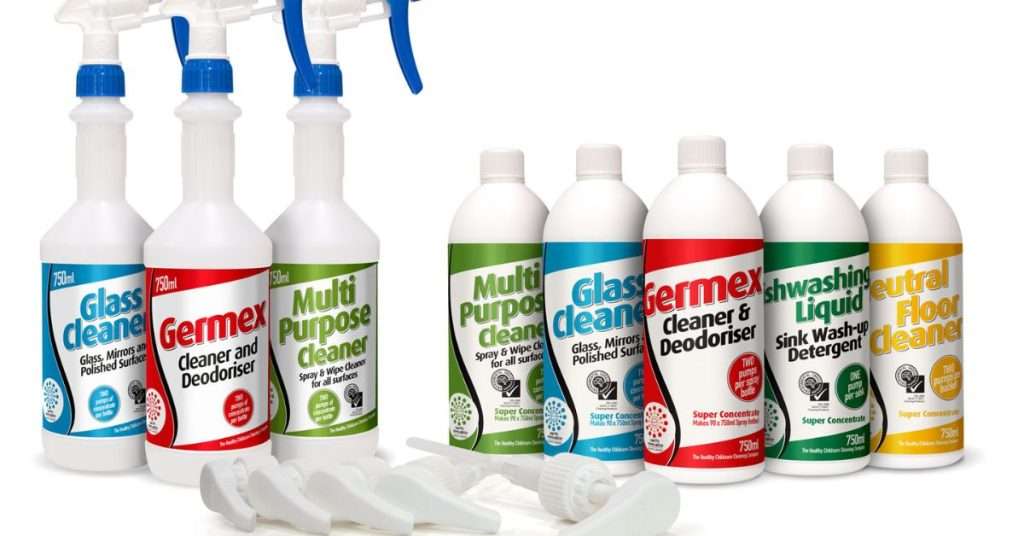
I understand now. Here’s the revised version with each point consisting of three lines:
- Spraying and wiping with suitable solutions can effectively eliminate ants in your bathroom:
- A mixture of bleach and water in a spray bottle is a quick solution for removing ant trails. Ensure proper ventilation when using bleach. It is essential to wear gloves and protective eyewear when handling bleach.
- Indoor aerosol sprays can effectively eliminate foraging ants, reducing the risk of being bitten. Choose products labeled for indoor use. Follow the instructions on the label for safe and effective application.
- However, it’s important to avoid mixing chemicals to prevent any harmful reactions. Read and follow all label instructions carefully. Never mix bleach with ammonia or other household cleaners, as it can produce toxic fumes.
Fumigation
Fumigation is a powerful method to eliminate severe ant infestations in bathrooms. This process involves using strong aerosol foggers that require leaving the room for a few hours and thorough clean-up afterward.
Effective Insecticide: Foggers contain cypermethrin, a potent insecticide that effectively kills ants on contact. It ensures that even hidden ants are eliminated.
Post-Treatment Clean-Up: After fumigation, it is essential to clean up thoroughly. This removes dead ants and any oily residue left behind by the fogger, preventing potential stains and odors.
Best for Severe Infestations: Fumigation is most effective for heavy infestations. For minor issues, consider using milder methods like natural sprays or bait stations to avoid overuse of chemicals.
Natural Sprays
Natural sprays are a safe and eco-friendly way to tackle ants in your bathroom. Using essential oils like lemongrass, peppermint, and tea tree oil, these sprays can effectively repel and kill ants without harmful chemicals.
Lemongrass Oil: This oil is known for its strong scent, which disrupts the ants’ scent trails and keeps them away from treated areas.
Peppermint Oil: Its strong aroma not only repels ants but also provides a refreshing scent to your bathroom, making it a pleasant option.
Tea Tree Oil: Besides repelling ants, tea tree oil has antibacterial properties that help keep your bathroom surfaces clean and hygienic.
Granular Baits
Granular baits are an effective way to control ants in your bathroom by targeting the colony. They attract worker ants, who then carry the poison back to their nest, eventually eliminating the entire colony.
Long-lasting Effect: Granular baits remain effective even when wet, making them ideal for damp bathroom areas where ants are likely to forage.
Easy Application: Sprinkle small amounts behind toilets or under sinks to draw ants away from visible areas and towards the bait.
Targeted Control: Use specific baits designed for the type of ants in your bathroom to ensure the most effective results.
Bait Gels
Bait gels are a convenient and effective method for controlling ants in your bathroom. They attract ants with their sweet taste, which ants then carry back to their colony, spreading the poison and eliminating the infestation over time.
Precise Application: Bait gels can be easily applied in cracks, crevices, and other hard-to-reach areas where ants travel.
Long-lasting: These gels remain effective for several weeks, providing continuous ant control without frequent reapplication.
Species-specific: Different ant species prefer different foods, so using the right bait gel for the specific type of ant in your bathroom increases effectiveness.
How to Keep Ants Out of Your Bathroom?
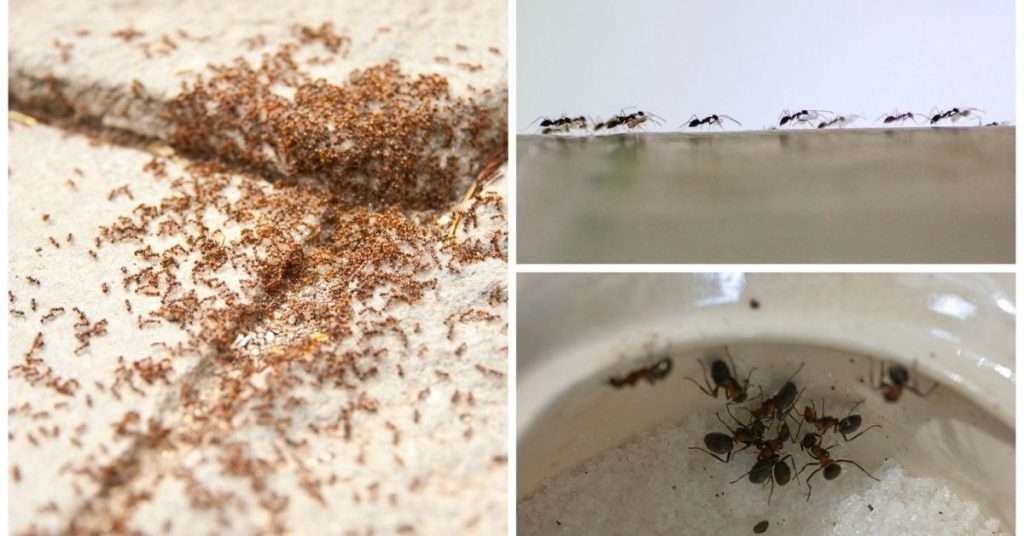
To keep ants out of your bathroom, focus on maintaining cleanliness, sealing entry points, and using repellents. By removing potential food and water sources, you can effectively prevent ant infestations and maintain a hygienic space.
Clean Regularly
Regular cleaning removes food and water sources that attract ants. Wipe down surfaces daily and clean your sink, tub, and toilet weekly. Don’t forget to sweep and mop the floor to eliminate crumbs and spills.
Seal Entry Points
Ants can enter through tiny cracks and gaps around windows, doors, and pipes. Use caulk or sealant to close these openings. Inspect and repair any damaged grout or tiles to block their paths.
Use Ant Repellents
Natural repellents like essential oils can help keep ants away. Apply peppermint or tea tree oil around entry points and other areas where ants are seen. For more persistent problems, consider using commercial ant repellents or bait stations.
Why Ants Would Be In Your Bathroom?
Ants are often found in bathrooms because they seek moisture. Leaky faucets, damp towels, and standing water provide the hydration ants need. These wet areas attract ants looking for a consistent water source.
Food sources also draw ants to bathrooms. Residue from toiletries, such as toothpaste and soap, can provide nourishment. Additionally, dead skin cells and hair add to the food supply that keeps ants coming back.
What attracts ants into homes and bathrooms?
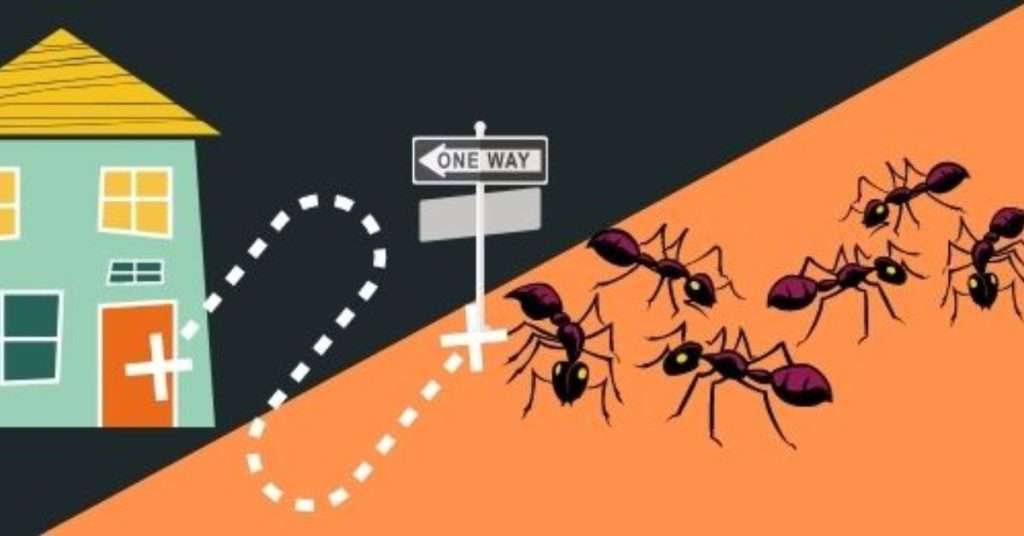
Ants are attracted to homes and bathrooms primarily for food and water. Crumbs, spills, and food residues provide ample nourishment. Leaky faucets and damp areas offer a steady water supply, making these spaces appealing to ants.
Shelter is another reason ants invade bathrooms. Bathrooms often have dark, warm, and moist environments. Small cracks and crevices in walls and floors provide ideal hiding spots for ant colonies.
Why are ants coming out of my bathroom sink?
Ants may come out of your bathroom sink because they find food and moisture in the drain. Debris like toothpaste residue and hair can attract ants. Even if water drains, small particles remain trapped, providing sustenance for these pests.
Another reason is the steady water source from a leaky faucet. Ants need water to survive, so they are drawn to any moisture. Additionally, ants can enter through gaps around plumbing, making your sink a convenient entry point for their colony.
How can you prevent ants in your bathroom?
To prevent ants in your bathroom, ensure proper sanitation by cleaning up spills and crumbs regularly. Seal any cracks or gaps around windows, doors, and plumbing fixtures to prevent entry. Keep surfaces dry and fix any leaks promptly to eliminate potential water sources. Consider using natural deterrents like essential oils to repel ants.
How to get rid of flying ants in the bathroom?
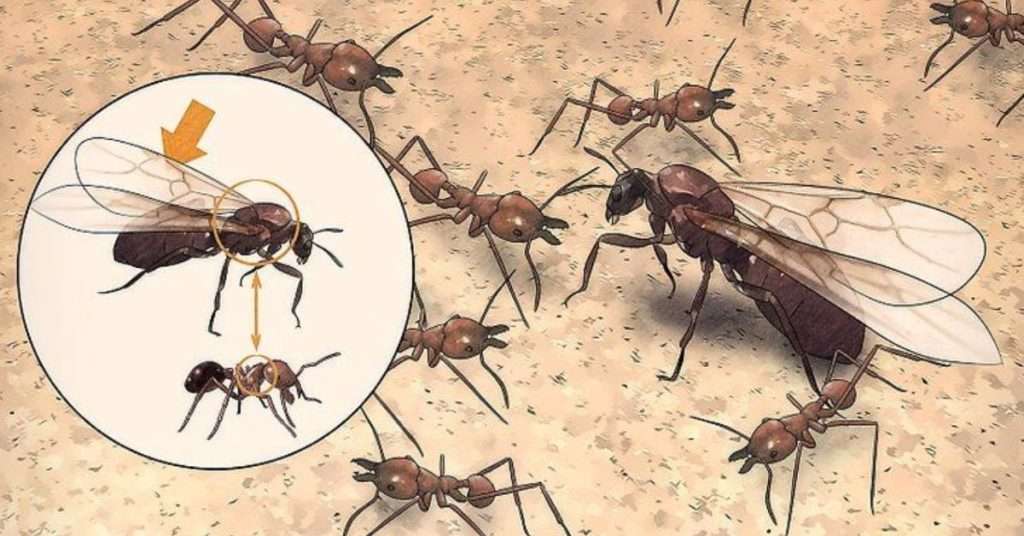
To get rid of flying ants in the bathroom, start by identifying their entry points and sealing them. Use insecticide sprays or traps specifically designed for flying ants. Keep the bathroom clean and dry to discourage their presence. Consider consulting a pest control professional for more severe infestations.
How can I permanently get rid of the ants in my bathroom?
To permanently get rid of ants in your bathroom, identify and eliminate their food and water sources. Seal entry points and cracks with caulk to prevent their access. Use natural or chemical treatments to eradicate existing ant colonies. Consider seeking professional pest control assistance for persistent infestations.
Also Read This Blog: Modern and Simple Barndominium Interior Design Ideas in 2024
Final Thoughts:
To get rid of ants in your bathroom, start by eliminating their food and water sources. Fix any leaks, clean up standing water, and keep surfaces dry. Regularly clean to remove toothpaste residue, soap scum, and other organic materials. Seal any cracks or openings where ants might enter.
Next, use bait gels or stations to poison the ant colony and residual insecticide sprays for immediate control. Natural remedies like essential oils can also help repel ants. Maintain a clean and dry environment to prevent future infestations. If the problem persists, consult a professional exterminator for more effective solutions.
Frequently Asked Questions?
What causes ants in the bathroom?
Ants are drawn to bathrooms because of the moisture from sinks, tubs, and showers. They also find food sources in toothpaste residue, dead skin cells, and other organic materials. The warm, humid environment provides an ideal habitat for them.
How to stop ants from coming in the bathroom?
To stop ants from coming into your bathroom, eliminate any standing water and fix leaks. Seal cracks and openings where ants can enter using caulk. Keep your bathroom clean and dry to remove any food sources.
What is the best ant killer for bathrooms?
The best ant killers for bathrooms include bait gels and stations, which attract ants and poison the colony. Additionally, residual insecticide sprays can be effective for immediate control. Always follow product instructions for safe use.
How to get rid of ants permanently?
To get rid of ants permanently, use a combination of natural methods like borax and diatomaceous earth. Seal entry points and maintain cleanliness to prevent future infestations. For persistent problems, consult a professional exterminator.
Why are there ants in my bathroom in the winter?
In winter, ants seek warmth and moisture indoors, making bathrooms a prime target. They are also searching for food sources that might be scarce outside. Seal cracks and keep the bathroom dry to deter them.
Why do I suddenly have ants in my bathroom?
Ants may suddenly appear in your bathroom due to changes in weather, food availability, or water sources. They might have discovered a new entry point or food source. Regularly clean and inspect your bathroom to prevent infestations.

